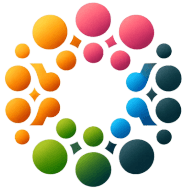11 Programs that Promote Cultural Sensitivity and Awareness in the Workforce
In today's rapidly evolving workplace, fostering cultural sensitivity is no longer optional—it's a necessity. Insights from a Business Development Manager and a CEO reveal that promoting cultural awareness can significantly enhance team dynamics. This article provides eleven expert recommendations, starting with implementing structured DEI training programs and concluding with pairing team members in mentorship programs. Explore these actionable strategies to create a more inclusive and harmonious work environment.
- Implement Structured DEI Training Programs
- Conduct Cultural Competency Training Programs
- Educate Team on Cultural Sensitivity
- Develop Culture-Exchange Workshops
- Lead Weekly Cultural Presentations
- Organize Cultural-Awareness Events
- Host Monthly Perspectives in Practice Workshops
- Create Cultural Exchange Program
- Share Information in Cultural Connections
- Pair Team Members in Mentorship Program
- Implement Cultural Competency Training
Implement Structured DEI Training Programs
Implementing structured diversity, equity, and inclusion (DEI) training programs is an effective way to promote cultural sensitivity in diverse workforces. Such programs enhance understanding of different cultural backgrounds, fostering a cohesive work environment. For instance, a tech company assessed its cultural landscape and created workshops, inviting guest speakers, and conducting immersive activities to educate employees on cultural nuances and biases, ultimately promoting inclusivity.

Conduct Cultural Competency Training Programs
One effective way to promote cultural sensitivity and awareness within a diverse workforce is through the implementation of cultural competency-training programs. These programs educate employees about different cultures, values, and communication styles, helping them understand and appreciate their colleagues' backgrounds.
A successful example of this approach is a program implemented at a mid-sized tech company where employees participated in workshops led by diversity and inclusion experts. The sessions included interactive activities, storytelling, and role-playing scenarios that allowed employees to explore cultural differences and address biases. As a result, the company reported improved teamwork and collaboration, as well as a significant increase in employee-engagement scores. This initiative not only fostered a more inclusive work environment but also enhanced innovation and problem-solving by leveraging diverse perspectives within the team.
Educate Team on Cultural Sensitivity
I have encountered numerous challenges when working with clients from different cultural backgrounds. It can be difficult to navigate cultural differences and ensure that everyone feels respected and included in the process of buying or selling a home.
One successful program that I have implemented within my agency is a cultural-sensitivity training for all employees. This training involves educating our team about different cultures, their customs, and traditions. We discuss how to communicate effectively with clients from diverse backgrounds and ways to adapt our services to meet their individual needs.
For example, we had a client who was moving from Japan to the United States and was not familiar with the local housing market. Through our training, we learned that direct eye contact is not as common in Japanese culture and it can be seen as a sign of disrespect. So, instead of making direct eye contact during our interactions, we made an effort to show respect by bowing slightly and maintaining a lower gaze.

Develop Culture-Exchange Workshops
One effective way to promote cultural sensitivity and awareness within a diverse workforce is through an inclusive training program that emphasizes personal storytelling and active listening. At Ponce Tree Services, I developed a quarterly Culture-Exchange Workshop where team members share personal stories and experiences related to their backgrounds, allowing others to understand and appreciate each unique perspective. Over my years in the industry, working side-by-side with people from all walks of life has taught me that empathy and openness make a huge difference in teamwork and morale. Being TRAQ-certified and a certified arborist with a long-standing commitment to high standards, I applied these principles in developing the workshop format, using real-world examples from our job sites to highlight how cultural awareness can improve both safety and collaboration in the field.
One standout moment from our Culture-Exchange Workshop involved a team member sharing his experiences with traditional landscaping practices from his home country. This opened up a meaningful conversation about how these methods could complement our work and led to a collaborative effort to integrate some of his techniques into our routine, ultimately improving efficiency. The workshop has become a catalyst for new ideas, boosted our team's cohesion, and fostered an atmosphere where every employee feels valued and respected. This initiative is an example of how understanding and celebrating diverse backgrounds can drive real, practical improvements in a work environment.

Lead Weekly Cultural Presentations
I worked in an office that was geared toward services for culturally diverse communities. At our weekly meetings, we took turns each week leading a 5-10 minute presentation or activity that related to our work. Employees would present on diverse topics such as language, holidays around the world, traditions, countries we were less familiar with, or sharing news from other parts of the world. This educated all staff as well as created a learning mindset in our office. We not only learned ourselves as we researched to present, but we would have meaningful discussions as a result of these presentations.

Organize Cultural-Awareness Events
One effective way I've promoted cultural sensitivity within a diverse workforce was by implementing cultural-awareness events in my education company, focusing on international students in the U.S. We organized monthly storytelling sessions where employees and students shared personal stories and cultural experiences. This approach not only highlighted diverse perspectives, but also fostered respect and understanding among the team.
During these sessions, I emphasized the importance of inclusive language and encouraged everyone to participate actively. For instance, we had an event themed around Lunar New Year, allowing our Chinese students to share their traditions and compare them with Western cultures. This initiative significantly boosted engagement and mutual respect, leading to a noticeable improvement in collaboration.
To measure success, we conducted feedback surveys indicating that 90% of participants felt more culturally aware and valued in their roles. This approach can be adapted by organizations looking to improve cultural sensitivity by celebrating differences and encouraging open dialogue.One effective way I've promoted cultural sensitivity within a diverse workforce was by implementing cultural-awareness events in my education company, focusing on international students in the U.S. We organized monthly storytelling sessions where employees and students shared personal stories and cultural experiences. This approach not only highlighted diverse perspectives, but also fostered respect and understanding among the team.
During these sessions, I emphasized the importance of inclusive language and encouraged everyone to participate actively. For instance, we had an event themed around Lunar New Year, allowing our Chinese students to share their traditions and compare them with Western cultures. This initiative significantly boosted engagement and mutual respect, leading to a noticeable improvement in collaboration.
To measure success, we conducted feedback surveys indicating that 90% of participants felt more culturally aware and valued in their roles. This approach can be adapted by organizations looking to improve cultural sensitivity by celebrating differences and encouraging open dialogue.

Host Monthly Perspectives in Practice Workshops
One effective way to promote cultural sensitivity and awareness in a diverse workforce is to implement regular, structured workshops that allow team members to explore and understand cultural differences in a supportive setting. At The Alignment Studio, we developed a program called Perspectives in Practice, which is a series of monthly workshops that cover a range of cultural sensitivity topics, from understanding diverse communication styles to respecting cultural approaches to health and wellness. These sessions include real-life scenarios and case studies relevant to our industry, encouraging our team to openly discuss challenges and solutions together. The workshops help staff better understand how culture influences not only patient expectations but also colleague interactions, creating a more empathetic and cohesive environment.
With over 30 years of experience working in diverse settings across Melbourne and Sydney, I was able to draw on my knowledge of effective communication and patient care in multicultural contexts to guide the development of this program. From working with elite athletes from varied backgrounds to directing teams at the University of NSW and The Mater Hospital, I've seen firsthand how a respectful, culturally aware approach can improve team dynamics and patient outcomes alike. This experience allowed me to tailor the workshops to meet the specific needs of a multidisciplinary team, making each session practical and directly applicable. The result has been a positive shift in our workplace culture, with improved team collaboration and a noticeable enhancement in how our staff connect with patients from all walks of life.

Create Cultural Exchange Program
For me, trailblazing in Man and Van Chelsea Greenwich's Cultural Exchange Program has been a truly eye-opening experience. Seeing my co-workers share their own tales and customs gave me a deeper awareness of other cultures than I had previously imagined I had. I recall being touched by our colleague's tales of her family's customs during "Irish Culture Month." I came to see that her explanation of the meaning of the Irish dances and symbols was more than simply facts; it was a glimpse into her ideals and way of life.
The opportunity to sample traditional Irish cuisine was one of my favorite aspects. Admittedly, I was initially hesitant to try black pudding, but I did, and I was pleasantly surprised! We all expressed our immediate reactions, which led to many amusing discussions and giggles. Another pleasure was watching everyone participate in the Irish dance class; even though nobody was an expert, we still had a blast. Events like these build shared memories that strengthen our team's sense of personal connection while also teaching us about one another's histories.

Share Information in Cultural Connections
I have seen firsthand the importance of cultural sensitivity and awareness in the workplace. In a field where interactions with clients from diverse backgrounds are frequent, it is crucial to have an inclusive and understanding approach.
One way to promote cultural sensitivity within a diverse workforce is through education and training. By providing resources for employees to learn about different cultures, beliefs, and customs, they can develop a better understanding of their colleagues and clients.
In my previous workplace, we had a successful program called "Cultural Connections." It was a monthly session where employees were encouraged to share information about their own culture or country. This allowed us to learn about each other’s traditions, festivals, and customs, leading to a better understanding and appreciation for our differences.

Pair Team Members in Mentorship Program
One effective way to promote cultural sensitivity and awareness within a diverse workforce is through a structured mentorship program that pairs team members from different cultural backgrounds. In my experience working in the gardening industry, I've witnessed firsthand how this approach encourages genuine relationships and mutual understanding, especially in a field where every team member's role and perspective contribute to a shared success. For instance, I developed a "Cultural-Exchange Mentor Program" at Ozzie Mowing & Gardening, where team members work closely with colleagues from different backgrounds to share not only technical skills but also insights into each other's unique cultural practices, values, and communication styles. This program doesn't just broaden their technical understanding of diverse gardening techniques; it also helps build empathy and awareness, which are essential for a cohesive and respectful workplace.
Drawing from my qualifications as a certified horticulturist and years of experience working with teams in various landscapes and environments, I structured the program to integrate cultural learning into everyday tasks. For example, mentors and mentees learn to consider different planting traditions and perspectives on land use. As a result, our team has grown more connected and capable of providing services that are respectful of the diverse communities we serve. The success of the program is clear in the feedback we receive from our staff who feel more valued and respected, and from clients who appreciate our culturally sensitive approach. This initiative has not only strengthened our team's unity but also enhanced our reputation as an inclusive, thoughtful service provider.
Implement Cultural Competency Training
An effective way to promote cultural sensitivity and awareness in a diverse workforce is structured cultural competency training that includes continuing education, open discussion, and real-life experiences. Such training provides employees with the knowledge and skills to better understand and appreciate cultural diversity, promote inclusiveness, and reduce misunderstandings.
For example, Deloitte's "Inclusion Moments" program has been a success. The program encourages leaders to talk about multiculturalism and inclusion issues through short, informal conversations with their teams. These "moments" are built into regular team meetings, allowing employees to engage in real-world situations, brainstorm ideas, and learn from each other in a non-judgmental environment. This approach demonstrates how a structured and ongoing program can significantly increase cultural awareness and create a respectful and inclusive work environment.




